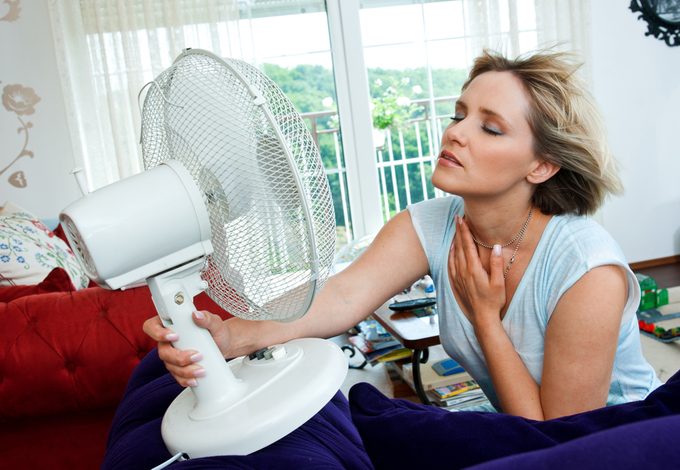Stay Cool: 4 Tips For Managing Hot Flashes
Don’t let this pesky menopause symptom bring you down.

Last year, research published in JAMA Internal Medicine discovered that menopause-related hot flashes and night sweats last an average of seven years (not six to 24 months, as previously believed). The exact cause isn’t known, but that sudden sensation of heat, especially in your face and upper body, is likely due to fluctuations in reproductive hormones. Here are four tips for coping with uncomfortable hot flashes.
1) Stay Cool For Better Sleep
Hot flashes tend to occur most frequently at night – and it’s hard to rest easy when your body temperature suddenly skyrockets and you wake up soaking wet. In milder cases, you might get away with a quick environmental fix, says Dr. Maureen Ceresney, co-director of the UBC Sleep Disorders Program. “Keep your bedroom cold,” she says. “Some of my patients even run air conditioning in their bedrooms during the winter.“
2) Layer Up
During the day, Dr. Ceresney also recommends dressing in layers that can easily be shed and avoiding things that can increase your body temperature, such as caffeine, alcohol, hot drinks and spicy foods. You may also find relief from stress-reduction techniques like meditation and deep-breathing exercises.
3) Chat With A Sleep Coach
A study published in JAMA Internal Medicine in May found that menopausal women who kept a nightly sleep diary and received cognitive behavioural therapy over the phone slept better than women who didn’t and, although they still had the same number of hot flashes, the severity of their symptoms was reduced.
4) Rethink Medication
The most common treatment for hot flashes is estrogen-based hormone therapy, although only as a short-term fix because it comes with an increased risk of breast cancer, stroke and blood clots. Non-hormonal medications (such as antidepressants and drugs commonly prescribed for nerve pain and high blood pressure) may also help.
Dr. Ceresney says that, though there are a number of over-the-counter and herbal preparations for hot flashes, the science is limited in terms of establishing a clear benefit from them. “Some people get a modest placebo effect from them, so it can be hard to tell if these supplements and herbal meds offer real benefits,” she says. Other non-medication treatments still need further study to establish whether or not they can be helpful.




